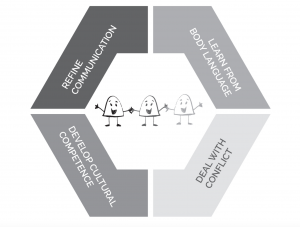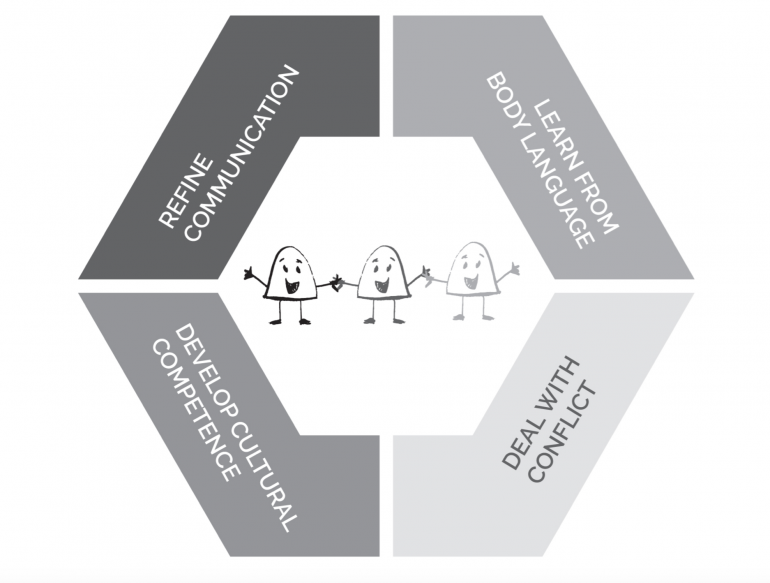One of the four strategies for building a healthy community is addressing conflict. Interestingly, this is often one of the most requested topics to discuss during our Art of Coaching Teams workshops.
 The idea of addressing conflict was a growth area for me when I first began coaching (and one I am still working on today!). I am not a confrontational person by nature and quite honestly don’t enjoy confrontation. As I worked through more of Elena Aguilar’s Art of Coaching though, I realized that I had to change my perception of conflict. I had such a negative view of what conflict was. As I began to shift my perspective and look at conflict as healthy or toxic, I was able to grow as a coach. In Chapter 4 of Onward we learn how healthy conflict leads to growth and connection in a social group. There may be moments that feel uncomfortable, or even rough, but as we navigate those, we feel closer to each other. Healthy conflict is marked by an exchange of ideas, a sincere asking of questions, and a genuine willingness on everyone’s part to listen and learn. This makes a relatively high level of trust and vulnerability and sometimes a courageous soul to initiate and engage in this kind of healthy conflict.
The idea of addressing conflict was a growth area for me when I first began coaching (and one I am still working on today!). I am not a confrontational person by nature and quite honestly don’t enjoy confrontation. As I worked through more of Elena Aguilar’s Art of Coaching though, I realized that I had to change my perception of conflict. I had such a negative view of what conflict was. As I began to shift my perspective and look at conflict as healthy or toxic, I was able to grow as a coach. In Chapter 4 of Onward we learn how healthy conflict leads to growth and connection in a social group. There may be moments that feel uncomfortable, or even rough, but as we navigate those, we feel closer to each other. Healthy conflict is marked by an exchange of ideas, a sincere asking of questions, and a genuine willingness on everyone’s part to listen and learn. This makes a relatively high level of trust and vulnerability and sometimes a courageous soul to initiate and engage in this kind of healthy conflict.
Ready to work on your approach to healthy conflict. Try incorporating these sentence stems into a conversation:
- I have some concerns about that suggestion. Could you explain it more?
- I want to push back on that idea. I’ve noticed…, and I would suggest….
- I disagree with you about that, but I want to hear your thoughts.
- I disagree with you about that, but I’m willing to change my mind.
- It would help me get behind that idea if I could hear more about…
Check out even more Sentence Stems for Healthy Conflict from The Art of Coaching Teams. As you work on cultivating your resilience, know that social confidence, assertiveness, and well-developed communication and conflict resolution know-how are essential skills and dispositions for helping professionals build emotional resilience.

